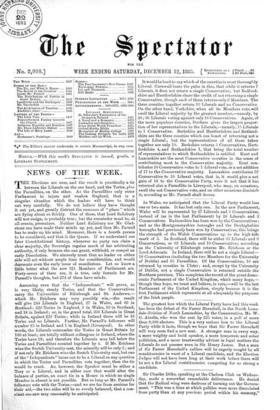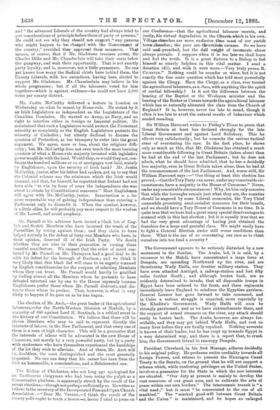Sir Charles Dilke, speaking at the Chelsea Club on Wednes-
day, made a somewhat remarkable deliverance. He denied that the Radical wing were desirous of turning out the Govern- ment. " This was a time at which politics were more dissociated from party than at any previous period within his memory," and " the advanced Liberals of the country had always tried to put considerations of principle before those of party or persons." He could not see why they should not, support " any, Rersona who might happen to be chewed with the Government of the country," provided they approved their measures. That means, of course, that if Mr. Gladstone resumes power, Sir Charles Dilke and Mr. Chamberlain will take their seats below the gangway, and wait their opportunity. That is not exactly party loyalty, and is, moreover, not a little premature. No one yet knows how many the Radical chiefs have behind them, the County Liberals, with few exceptions, having been elected to support Mr. Gladstone. Mr. Chamberlain may believe in his whole programme ; but if all the labourers voted for him together—which is against evidence—he could not have 2,000 votes per county district.



















































